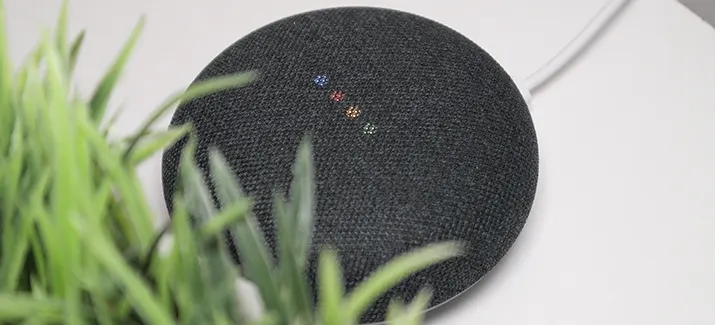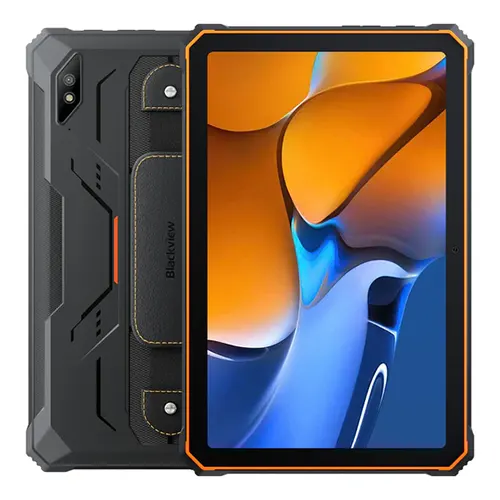
The Rise of Smart Speakers: Revolutionizing How We Interact with Technology
In recent years, smart speakers have emerged as one of the most transformative technological innovations, reshaping the way we interact with our digital world. These voice-activated devices have rapidly gained popularity, finding their way into millions of homes worldwide. In this comprehensive blog post, we'll delve into the world of smart speakers, exploring their evolution, functionality, benefits, and the ways they're changing our daily lives.
What Lies Ahead: The Future of Smart Speakers
As we navigate the ever-changing landscape of technology, it's crucial to keep an eye on what the future holds for smart speakers. These voice-activated devices have already transformed the way we interact with technology and our surroundings, but their journey is far from over. Here, we'll delve into the exciting possibilities and emerging trends that will shape the future of smart speakers.
The Evolution of Smart Speakers
Smart speakers have come a long way since their inception. Here's a brief history:
Early Days: The concept of voice-activated technology dates back to the 1950s, but it was in 2011 that IBM introduced Watson, showcasing its potential. However, Amazon's Echo, powered by Alexa, launched the smart speaker revolution in 2014.
Market Expansion: Amazon's Echo was soon joined by Google Home, Apple's HomePod, and other competitors, leading to a growing market. These devices continuously evolved, becoming more sophisticated and capable.
Integration: Smart speakers began integrating with smart home devices, allowing users to control lighting, thermostats, and more with voice commands. This integration expanded their utility.
How Smart Speakers Work
Understanding the underlying technology is crucial. Smart speakers rely on:
Wake Word: Smart speakers are always listening for a wake word (e.g., "Alexa" or "Hey Google"). Once triggered, they start processing your request.
Natural Language Processing (NLP): NLP technology interprets your voice commands, understanding context and intent to provide relevant responses.
Cloud Connectivity: Most processing occurs in the cloud, enabling access to vast databases of information, music streaming, and real-time updates.
Benefits of Smart Speakers
Smart speakers offer a plethora of benefits, enhancing our daily lives:
Convenience: Control your home, set reminders, or ask questions, all hands-free.
Entertainment: Stream music, audiobooks, podcasts, and even control your TV.
Information: Get weather updates, news, sports scores, and answers to virtually any question.
Smart Home Control: Adjust thermostats, lights, locks, and security systems with ease.
Accessibility: Assist those with disabilities by providing voice-activated assistance.
Privacy Concerns
While smart speakers offer convenience, they also raise privacy concerns:
Voice Data Storage: Recordings are often stored in the cloud, leading to concerns about data privacy and security.
Unauthorized Access: Instances of smart speakers recording private conversations have sparked fears of unauthorized access.
Data Collection: Tech companies collect user data to improve their services, raising questions about how that data is used.
Popular Smart Speakers
Explore the leading smart speaker options:
Amazon Echo: Your Voice-Controlled Assistant

The Amazon Echo, powered by Alexa, is a versatile smart speaker that combines a voice-controlled assistant, music player, and smart home hub into one device. With Alexa's ever-improving capabilities, you can enjoy personalized music streaming, control your smart home devices, stay informed with news updates, and even customize its functionality with third-party Skills. Privacy and security are paramount, with control over voice recordings and a physical mute button for added peace of mind.
Google Home/Nest: Smart Home Intelligence

Google Home and Nest smart speakers are designed to bring the power of Google Assistant into your home. With voice commands, you can ask questions, play music, control smart devices, and receive personalized responses. Enjoy seamless integration with other Google services, access to a vast knowledge database, and the ability to manage your daily tasks efficiently. Google's dedication to privacy ensures your data is secure.
Apple HomePod: Immersive Audio Experience

Apple's HomePod focuses on delivering high-quality audio and seamless integration with your Apple ecosystem. This smart speaker boasts impressive sound quality, adapting to your room's acoustics. With Siri as your voice assistant, you can control music playback, smart home devices, and access information hands-free. HomePod effortlessly connects to your Apple devices, providing a premium audio experience throughout your home.
FAQs About Smart Speakers
1. How do smart speakers process voice commands?
Smart speakers use Natural Language Processing (NLP) to interpret voice commands and understand context and intent to provide relevant responses.
2. Are there privacy concerns with smart speakers?
Yes, privacy concerns include voice data storage in the cloud, potential unauthorized access, and data collection by tech companies.
3. What are some popular smart speaker options?
Popular smart speakers include Amazon Echo, Google Home/Nest, and Apple HomePod, each with its unique features and capabilities.
4. How can smart speakers benefit people with disabilities?
Smart speakers offer hands-free assistance, making them valuable tools for individuals with disabilities in various aspects of daily life.
5. What are the future trends for smart speakers?
Future trends include advancements in AI and NLP, potential healthcare applications, and wider integration with various aspects of our lives.
Latest Blogs

Exploring Memory Card Types: A Comprehensive Guide

Blackview Tablet Reviews: A Comprehensive Look at Features and Performance

The Best Portable Power Stations & Solar Generators in the UK (2025 Guide)

10 Best Smartwatches for Kids


